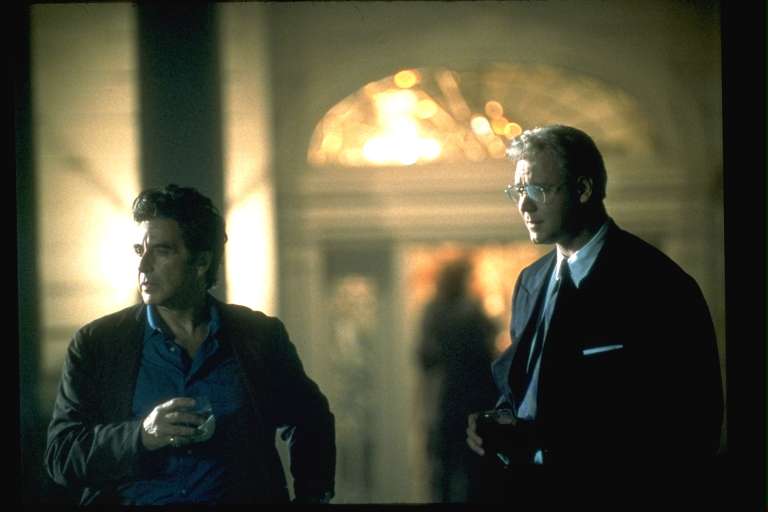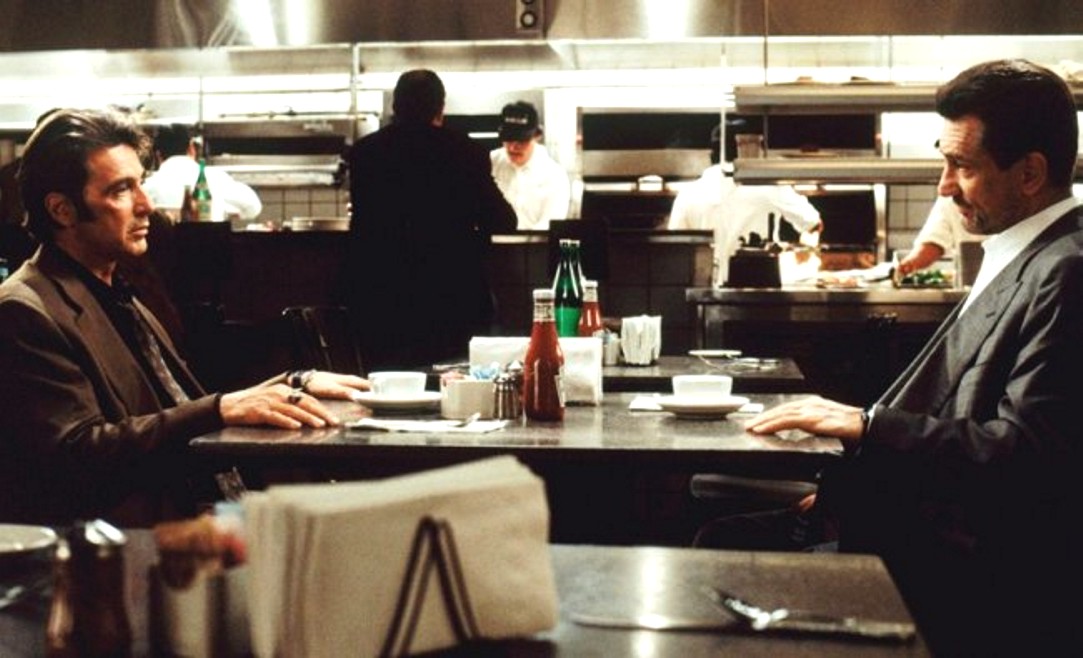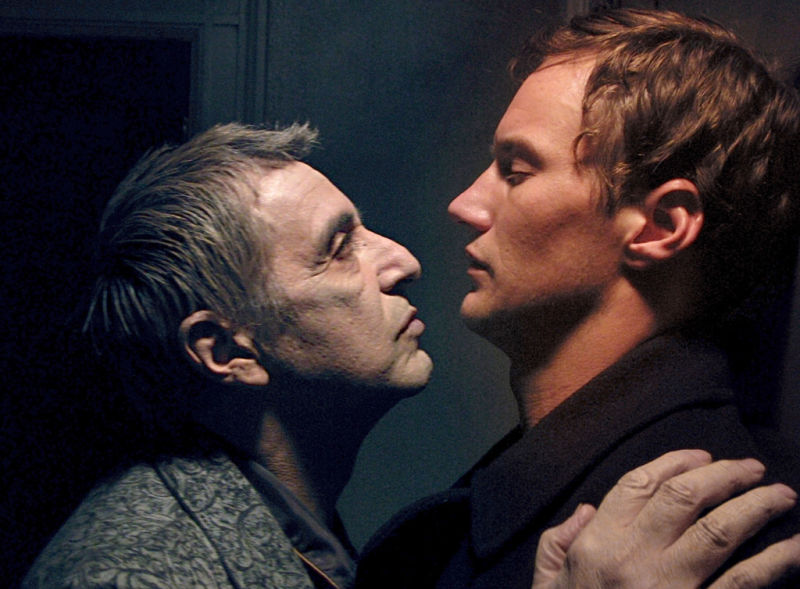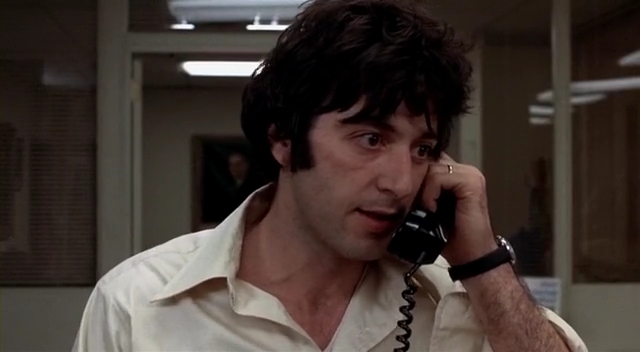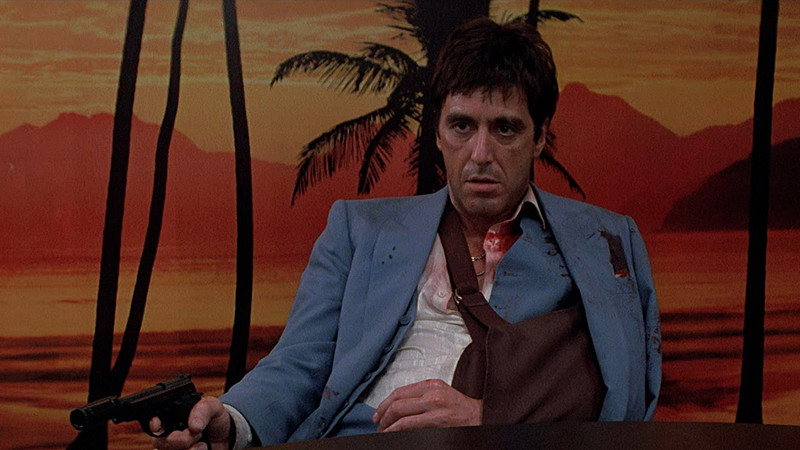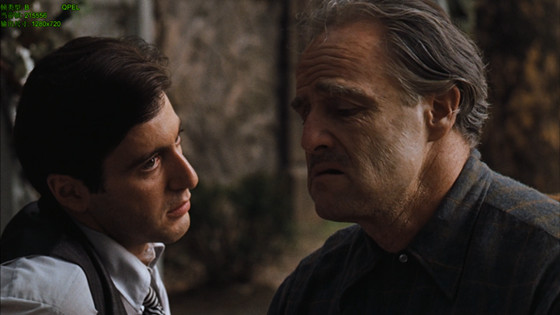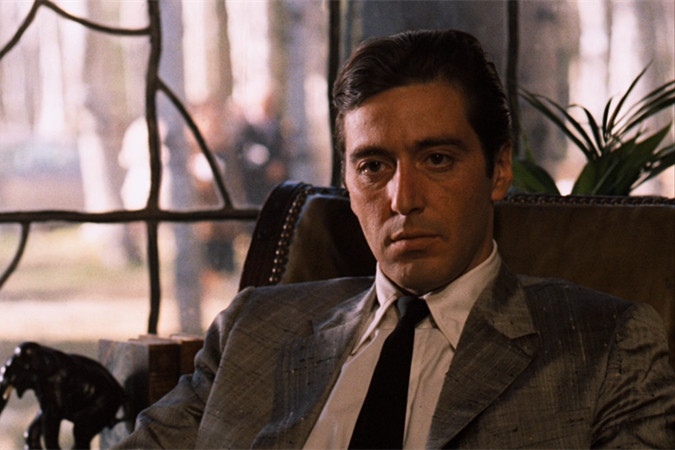8. Cruising (1980)
A film that the company that made it, Warner Brothers, have been trying to bury for years, this is a deeply disturbing and unsettling look at the S&M scene in New York in the early Eighties, pre-AIDS.
Pacino plays a cop who goes deep undercover into this scene to flush out a serial killer. Pacino excels at depicting the way in which his character, Steve Burns, starts to completely lose his mind and bearings due to the nature of the work he does. Powerfully directed by William Friedkin (“The French Connection”/”The Exorcist”), it caused an incredible amount of controversy at the time, primarily amongst the gay community in America who were offended by what they saw as a negative depiction of their world.
Today, the film still has a gut punch raw power to it. Once seen, “Cruising” isn’t forgotten easily.
7. The Insider (1999)
One of those remarkable films that came out in 1999, this sees Pacino once again team up with his “Heat” director Michael Mann. A vastly different film from the masterpiece, this is a slow burn of a work that really gets its hooks into the viewer. This is pure Pacino, none of the staccato, shouting caricature that he had, at times, become.
Taking aim at Big Tobacco, this is a film that is brave, ballsy and never flinches from its subject matter and the morally complex minefield that involves. “The Insider” also features some career best work from Russell Crowe, Diane Venora and, in particular, Christopher Plummer. A class act all the way, this one.
6. Heat (1995)
One of the absolute signature films of the Nineties, Michael Mann’s meticulous “Heat” is a powerful, compelling and visceral look at driven, obsessive men and the damage, both physical and mental, they do to the world around them and themselves.
Pacino plays Vincent Hanna, a driven, almost psychotic, policeman with a strong, unshakeable moral compass, determined to bring down a gang of back robbers, led by Robert De Niro’s Neil McCauley. What is so admirable about “Heat” is the way it goes behind mere plot/genre machinations and really gets you into the heads of its characters. The way in which we see Hannah’s personal life falling apart around him, while his professional life plays out, really adds depth and power to the story.
“Heat” also features the first time that Pacino and De Niro share screen time together. Although they both featured in “The Godfather, Part II”, the parallel narrative meant that they never had any scenes together. In “Heat”, the sequence in the coffee shop where dedicated cop and master criminal share time together is nothing short of magisterial. It really is a scene that makes you say to yourself ‘this is acting!’.
“Heat” is one of the finest achievements in cinema in the decade of the Nineties. It’s a film that can never be seen too many times.
5. Angels In America (2003)
Not a film per se, but a brilliantly envisioned and realised mini-series take of the utterly kinetic, one of a kind play from writer Tony Kushner.
A multi-strand narrative look at the early days of AIDS and its effect on America, Pacino plays real life power broker Roy Cohn, a man who made his name as a key aide to Senator Joseph Mc Carthy during the 1950s “House UnAmerican” hearings and the “Red Scare” paranoia that went with it.
A vile piece of work, Pacino utterly dominates ever single scene he’s in. This is a man who has been utterly corrupted by power and his own avarice and greed, looking for redemption and grace when he realises he is dying and in the process of leaving this mortal coil. Pacino has continued to surprise and impress throughout his career, but his work as Cohen will shock and stun the viewer, leaving incision marks on their souls.
4. Dog Day Afternoon (1975)
Once again teaming up with director Sidney Lumet, “Dog Day Afternoon” is cinema at its most electrifying and thought provoking. Pacino plays Sonny Wortzik, a bank robber who, along with his partner Sal (the late, great John Cazale, his co-star from the first two “Godfather” films), redefine the term ‘incompetent’.
A blackly comic and, at times, quite radical take on the cinematic staple of ‘the bank robbery’ (you’ll never believe what Sonny wants the money from the robbery for), this is Seventies cinema at its most essential, a beautiful marriage between actor and director.
3. Scarface (1983)
Over the years, many have accused Pacino of being over the top in his acting style and approach, particularly the way THAT HE DELIVERS HIS DIALOGUE IN BLOCK LETTERS LIKE THIS! However, “Scarface”, brilliantly written by Oliver Stone and directed by Brian De Palma, was a rare case where his acting fit the material like a glove.
Charting the rise and fall of Cuban gangster Tony Montana and his pursuit of The American Dream, this is a film and a performance with style and substance to burn. Raw, pulsating and utterly in your face, this is essential cinema and, to many, Pacino’s finest hour. He absolutely grabs you by the throat from the first time he is on screen until the last.
“Scarface” died an absolute death at the box office upon release, due primarily to the ballistic and almost operatic way it depicted American greed and excess and the fact that people couldn’t handle a cinematic mirror being held up to the current state of their society.
In a turn of events, the film has gained a spectacular cult following over the past thirty years. Rappers hold it up as their equivalent of “The Art Of War” in relation to a guide on how to live life. It is a remarkable and utterly unforgettable work, and possibly the finest thing that Pacino, Stone and De Palma have ever done in their respective careers.
2. The Godfather (1972)
Directed by Francis Ford Coppola, “The Godfather” is an utterly iconic tent pole of Seventies American cinema. Pacino, playing youngest son Michael Corleone, proves to be the linchpin that holds this film together. Wary of his family and all it stands for, Pacino’s performance, and the way he conveys Michael’s spiritual corruption and corrosion of innocence, is an absolute joy to behold.
Want proof? Check out the scene between Pacino and a magisterial Marlon Brando in the garden, where the power of the head of the family is spiritually transferred to the son. Allegedly given a writing polish by renowned screenwriter Robert Towne, this is one of those ‘as good as cinema gets’ moments.
1. The Godfather, Part II (1974)
Using a daring parallel narrative, which shows both Vito Corleone (Robert De Niro) in his younger days, as well as Michael Corleone (Al Pacino) at the height of his powers as the head of the Corleone Family, Francis Ford Coppola’s sequel is one of the finest of a remarkable decade of film making, and until Peter Jackson’s “The Return Of The King”, the only sequel to ever win a Best Picture Oscar.
“The Godfather, Part II” is a haunting look at the soul of a man dying piece by piece, showing that absolute power corrupts absolutely. Pacino is at the absolute height of his powers here, showing the depths that a man will go to, whether it be divorce or killing his own brother, to hold on to power. The stare he directs at Kay (Diane Keaton) upon the revelation that she didn’t have a miscarriage but, in fact, had an abortion will haunt you till your dying days!
Author Bio: Neil is a journalist, labourer, forklift and truck driver. In a previous life, he was a projectionist for ten years. He is a lifelong student of cinema.

